Guide To Moving To London
For International Students
This guide will help to prepare you for your move to London, the greatest city in the world!
Everything you need to know including:
- What you should pack
- How to find accommodation
- How to travel around the city
- Much more advice & guidance
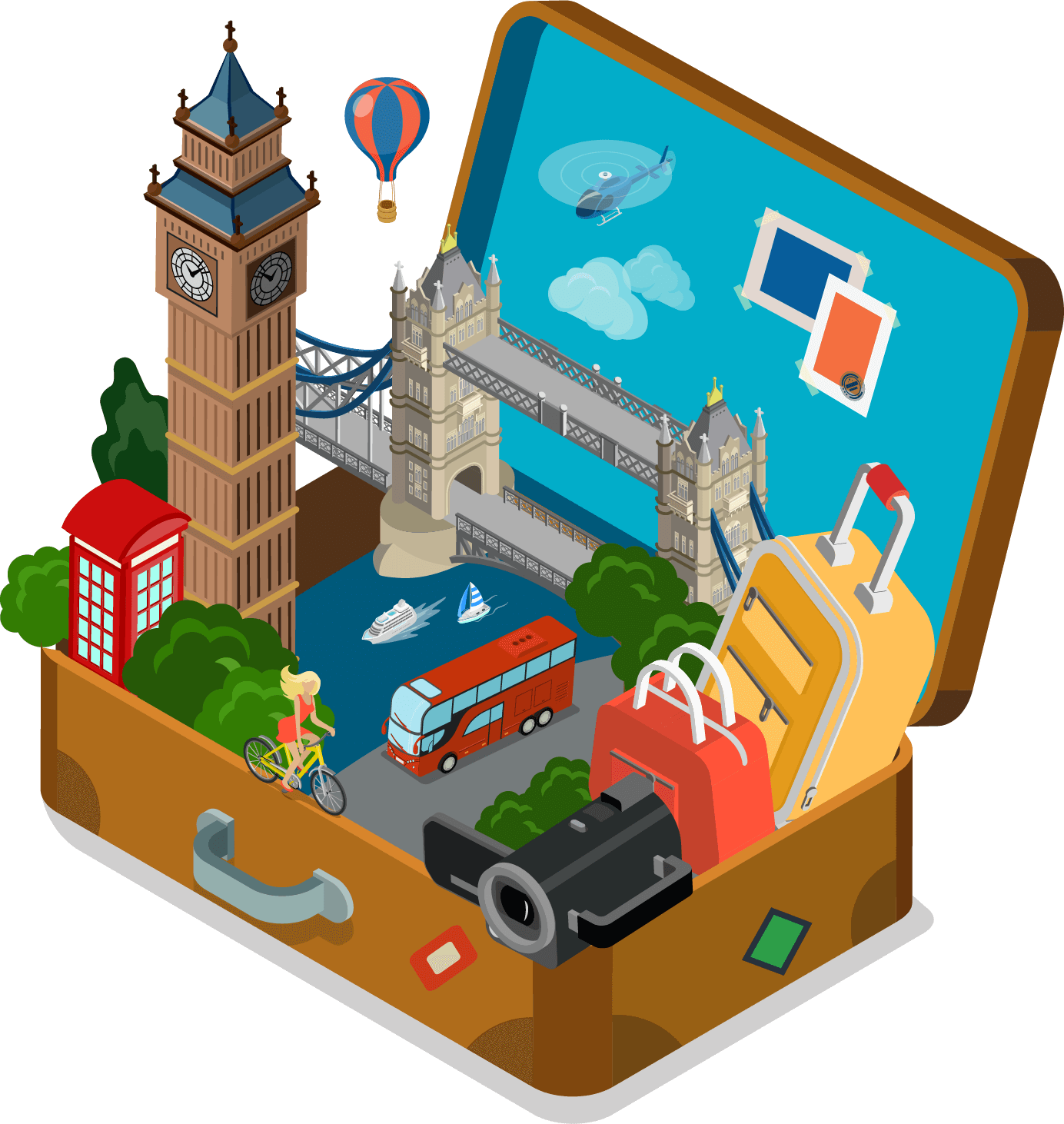
You’re moving to London, congratulations! You are coming to live in one of the most exciting cities in the world. London is a truly unique place to live and welcomes people from all over the world choosing to live, study or work here. It has a diverse community, representing a wide range of beliefs, outlooks and backgrounds. It’s going to be an amazing adventure. However, there’s a lot to prepare for in this next chapter of your life so we’ve put everything you need to know, do or prepare for into this complete guide to moving to London.
Table of Contents
Chapter 1:
Preparing for London life
Before arriving in the UK, it is vital you have as much organised as possible. This includes making sure you have:
- Your visa & visa paperwork
- Your accommodation arranged
- Your finances in place for studying in the UK (including your university fees paid or a payment schedule agreed)
- Your university paperwork
- Airport transport - Taxi, Train, Bus
We also recommend that you:
- Join Facebook groups with other international students in London so that you can chat and ask any questions you have with like-minded people and even make some friends before you arrive! Explore our UWS London Facebook page for more general information.
- Research the area you’ll be living in and plan some fun activities for when you arrive.
- Get a health check – more detail in the Healthcare section.
What to bring:
It’s important to pack light as most airlines only allow between 23kg-32kg and anything else you need you will have to get once you are in the UK.
Now if there is one thing to note about us Brits, is that we love talking (moaning) about the weather! The weather in the UK is unpredictable and is known for often being cold and wet. Temperatures rarely drop below freezing (0C) in the winter months and the summer months are usually quite mild (rarely go above 25C).
Remember – it can get very hot on the tube in the summer months so make sure you’re prepared and always carry plenty of water.
Learn more about London
From visa information to what to pack, find out everything you need to know to prepare for life in London. Read more in the guide below.
Read more: Things to know before moving to London
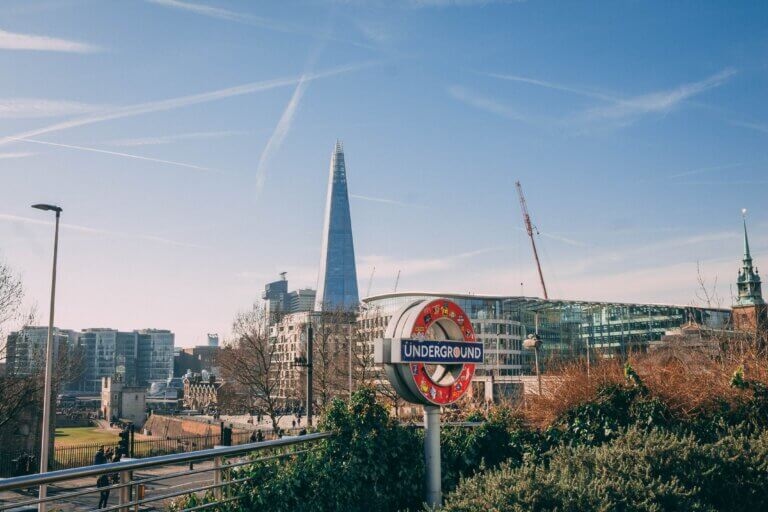
Things To Know Before Moving to London
Things To Know Before Moving to London So, what should I know before moving to London? Before coming to the UK, it’s a great idea
Chapter 2:
Accommodation

Explore the best areas to live in London
Preparing for your move to London? Here’s everything you need to know about choosing the best location to live as well as accommodation options.
Read more: where to live in London
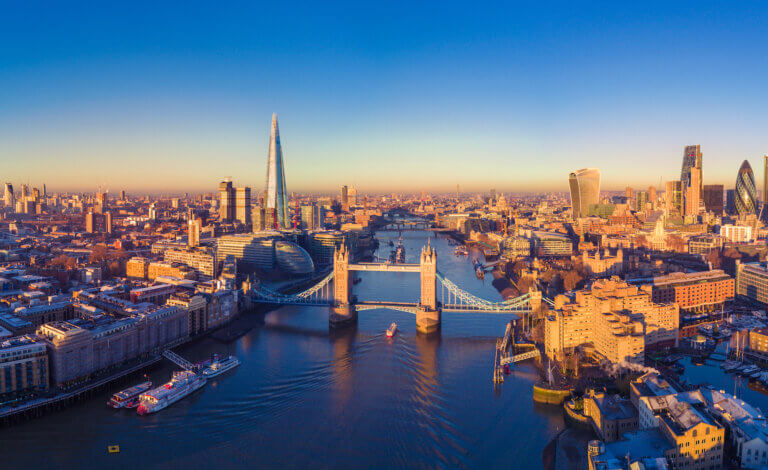
Where To Live in London
Where To Live in London Wondering where to live in London? Look no further. We’ve got the latest advice and top tips on where you
Camden
Finsbury Park
Mile End
Docklands
Brixton
Stratford
Peckham
Shepherd's Bush
Hammersmith
When should I start looking?
London’s private rental housing market is very fast paced. Private properties are usually advertised a maximum of one or two months before they become available to move into. Rooms in private halls of residence are generally advertised earlier in the year.
It can be difficult for international students to visit their accommodation beforehand. If you are wanting to move into private rented house/flat shares it is highly advised to view the property before you sign the contract, otherwise dangerous scams can occur. It is recommended that you reserve temporary accommodation for when you first arrive in the UK – either staying in a hotel or guest house. This means when you arrive in the UK, you can start viewing longer-term accommodation options. Make full use of your university’s house-hunting support for this.
Finding housemates
There are plenty of websites such as spareroom.co.uk where you can find flatmates in London. Read more about student accommodation in London.
What type of accommodation is there?
It’s important to take your time when choosing where you want to live as you’ll be there for the duration of your studies.
Chapter 3:
Exploring London
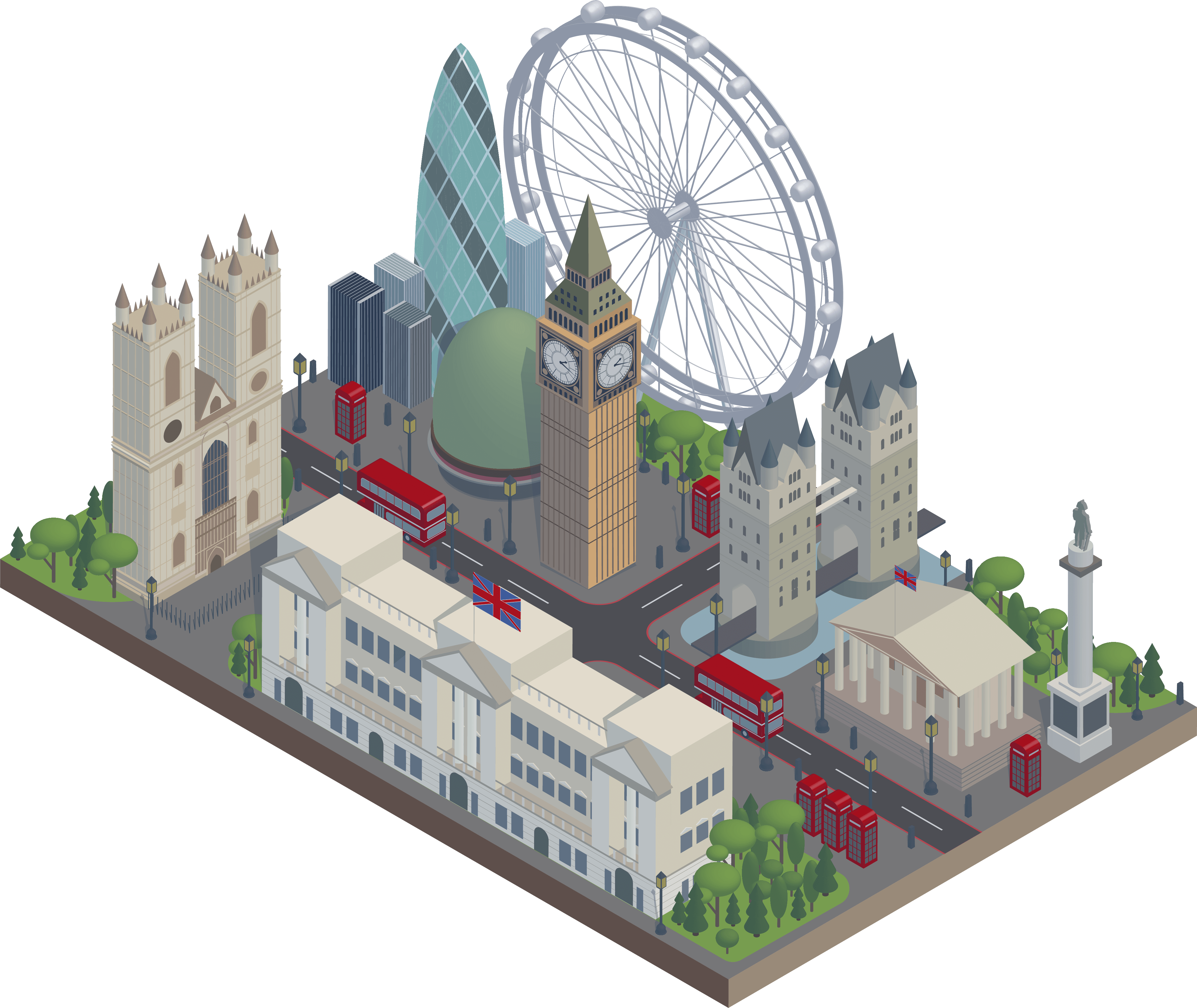
Time to explore London
Now that you’re settled in your new home, it’s time to explore! As well as the unmissable tourist spots, London is full of hidden gems and there’s always something new to discover.
To get you started here’s a list of things you can do to get you settled into your new city:

Tourist attractions
There are plenty of free attractions in London. Great places to visit include Trafalgar Square, Buckingham Palace or Piccadilly Circus.
Parks and open spaces
Although London is known for its busy city life, you’re never far from a green relaxing space. Walk among the deer in Richmond Park or watch the pelicans and water birds in St James’ Park. A few other popular parks include Wimbledon Common, Hyde Park and Park Vista. There are other beautiful open spaces in London including Highgate Wood or Epping Forest.
Walks
A great way to get familiar with the local area around you is to go on walks or bike rides. South Bank is a beautiful walking spot.
Museums and galleries
The British Museum, the National Gallery and the Natural History Museum all have free entry. There is also the Tate Modern, which holds art by Picasso and Bonnard.
The UWS London Campus is in an ideal location for students and there’s lots of options for getting around the city. Did you know – it’s only a 1 minute walk away from East India DLR station and it’s possible to get from East to West in just 30 minutes!
The campus is located in East London – the land of shabby chic. This rich and diverse area has something for everyone; whether you’re interested in art, want to learn more about the city’s history or party all night, there’s something for everyone. From one of London’s biggest roof gardens to an Everyman Cinema to a year-round arts and events programme, the list goes on. For the sport lovers, the Queen Elizabeth Olympic Park is just to the North of the campus or if you love to shop til you drop, Westfield Stratford City shopping centre is nearby. UWS London is located near Canary Wharf which has over 300 shops, cafes, bars and restaurants. And this is only the start, there is so much to discover in the capital city, so get exploring!
Transport around London
Travelling around London might feel daunting at first, but it is easy to get the hang of and there are lots of options to choose from. Pick up an Oyster card when you arrive in the UK – it is an electronic smart card that can be used on public transport in London. It will get you great discounts (save up to 30%). You can apply for an Oyster card online once you have enrolled at UWS London and have secured accommodation.
Download the app City-mapper – it will give you a good idea of how to get around London. You’ll be able to see what bus or tube to get to Uni and how long it will take you.
Tube
The most popular way to travel around London is by the ‘tube’ – a huge underground network of trains. There are over 270 tube stations and the trains run every few minutes on different routes called ‘lines’.
Bus
Another option to travel around London are the iconic red buses. You can either use an Oyster or contactless payment card.
Walking
Walking is the cheapest way to discover the beautiful city and a great way to keep you fit!
Cycling
Another great way to keep fit is to cycle around the city using the Santander cycle bike-sharing scheme. There are plenty of cycle lanes and docking stations where you can hire a bike for as little as £2 and return it to another docking station once you’re done. Students can save 25% on an annual membership. It’s as simple as that but remember to get yourself a good cycling helmet!

Chapter 4:
Finance & Funding

Finance and funding
Funding a place at University is one of the most important considerations for all students.
There are a few different options for financial support as an international student:

International student loans
It isn’t possible to get a UK government loan (student finance), however there are other education loans available depending on your home country. These include Study Abroad Loans for US students studying for a short period of time and Foreign Enrolled Loans for students studying full-time abroad (check whether this applies to your home country).
Banks
Your bank may be able to provide a student loan for you. The benefits are that they will generally charge a lower interest rate than they would on other types of loans and their terms may be more flexible.
Private companies
Some large companies that are keen to employ graduates of your subject, may be able to offer financial support for you, if you agree to work for them after graduating. Therefore, it is always worth contacting different companies to see what they can offer, especially if you’d like a career in finance.
Family
It may be an option that your family can help you financially, therefore it is worth discussing this option with them.
Scholarships
Sometimes scholarships can be available for international students. Therefore it is worth researching to find out if you are eligible for one.
Tips on how to open a bank account in the UK
Read our guide on how to open a UK bank account and prepare your finances for your studies in the UK.
Read more: opening a UK bank account

Opening Up a UK Bank Account
Opening Up a UK Bank Account Welcome to the UK! Thinking about setting up a bank account? If you’re a non-UK resident, opening a bank
Budgeting
Becoming a student will have a big impact on your budget. Therefore, once you know what funding is available and whether you are eligible, it’s important to start thinking about prioritising what you spend your money on. Keep reading for advice on how to manage your money and help reduce any financial worries.
>> Try the Student Budget Calculator
Step 1: Work out your monthly outgoings. This should include everything you pay for each month. For example: rent, bills, food shopping, gym, books & study materials, Netflix etc.
| Monthly outgoings for January | Amount | Rent | £800 |
|---|---|
| Bills | £100 |
| Food shopping | £250 |
| Gym | £30 |
| Study materials | £30 |
| Netflix/Amazon Prime/Entertainment/Subscriptions | £20 |
| TOTAL | £1230 |
Step 2: Work out your total income for the month
| Monthly income for January | Amount | Part time job | £600 |
|---|---|
| Allowance from parents | £500 |
| Other income | £200 |
| TOTAL | £1300 |
Step 3: Calculate the difference.
Here is an example of how to work out your budget for each month.
| Monthly income | £1300 | Monthly outgoings | £1230 |
|---|---|
| Difference (income minus outgoings ) | £70 |
Step 4: If your outgoings are more than your income then you will need to think about how to:
reduce your outgoings by making savings or cutting back on your spending. (Is there anything that you can cut back on? Any subscriptions you don’t really need?)
increase your income by getting a part-time job or asking for another form of financial support.
Saving and budgeting as a student
Mindful of your budget? Dont worry, we’ve got some great tips to keep your money well managed and help you save those pennies!
Read more: saving tips for students

Saving Tips for Students
As you embark on your student journey, it’s important to be mindful of your budget. But don’t worry, we’ve got some great money-saving tips for
Chapter 5:
Healthcare

Healthcare in the UK
Get to know the UK healthcare system and what you need to prepare for before starting university and your life in London.
Read more: guide to healthcare in the UK

A Guide to Healthcare in the UK
Taking care of your physical and mental well-being is incredibly important while studying in the UK, and we’re here to provide you with some friendly
Staying fit & healthy
Trying to juggle your studies, social life and staying fit & healthy can be a huge challenge, but looking after yourself mentally and physically at university is fundamental. A great way to stay fit is to join a gym. For UWS London students, there is a 24 hours PureGym (East India Docks) on campus that includes gym space, fitness classes and personal trainers. With different membership options available, you can find one that suits your needs. Other gyms nearby include: Virgin Active, F45 Blackwell, Royal Docks Fitness, Third Space Canary Wharf. Make sure to check if they offer student discounted memberships. Exercising regularly is not only a great way to stay fit but it’s a great way to manage stress and anxiety.
Practicing mindfulness is a great way to switch off from the hustle and bustle of student London life. There are some great apps like Headspace or Calm that can help guide you through meditation activities. Studies show that meditating to start your day enhances your awareness, prevents stress and anxiety and boosts your overall well-being. UWS London also offers health and wellbeing events for students to get involved in.
Some other great ways to stay fit and healthy are:
- Joining a sports team
- Staying hydrated - it is recommended that you drink around 2 litres of water a day
- Get enough sleep - 7-9 hours is recommended
- Walk and cycle places if possible - it is much better for the environment and great for fitness!
Chapter 6:
Student life in London

Nightlife

Being the capital city, London is well known for its non-stop nightlife. Any night of the week, you will find a range of events and there is definitely something for everyone! If you’re looking for glamour, Mayfair clubs or South Kensington bars are where it’s at. Popular places include Dirty Bones Kensington, The Builders Arms or Balans Cafe Bar. Or for the more relaxed and quirky type, Camden Town or Shoreditch are exactly what you are looking for. For example, Simmons Mornington Crescent or Old Street Records. There are plenty of rooftop bars for the warm summer nights, such as Bar Elba in Waterloo. If you love a pub crawl, Soho has the perfect atmosphere with diverse colourful bars and pubs. A cheaper option for students but perhaps not so fancy is Wetherspoons. The closest Wetherspoons to UWS London is the Ledger Building. A few of the most popular Wetherspoons in London are The Ice Wharf in Camden, Hamilton Hall on Liverpool Street and the Beehive in Brixton.
Pubs and bars aren’t for everyone. In the summer, the London Eye is open slightly later (usually til around 8.30pm) and gives you a beautiful night view of London. Alternatively, you could watch a comedy show (hosted by the Angel Comedy Club or at the popular Top Secret Comedy Club), go to the cinema, or book a boat trip along the river Thames. With West End theatre show deals there’s always something for everyone’s budget! Groupon and Design My Night are great places to find nightlife deals and it’s always worth asking if you can get a student discount.
Other fun ideas include testing your brain-power with friends by going to an escape room or having a game of mini golf at Junkyard Golf Club. For the thrill-seekers, there are plenty of murder mystery tours (Jack the Ripper and the Sherlock Holmes Tour is a popular one) or ghost walks. Another option is Camden Arts Centre which is open until 9pm every Wednesday with free talks, film screenings and live performances.
Freshers week
A great way to make friends and step straight into student life is joining freshers week! This is a welcome period for new students starting university before lectures and deadlines begin. It’s an amazing chance to meet new people, blow off steam and learn more about your course, campus and clubs. You can join in a great mix of day-time activities and buzzing nightlife events. There really is something for everyone, so get signing up!
However, if you can’t attend freshers week or it just isn’t for you, your university’s student support/ international office is always there to provide you with useful advice on university life, your course, the campus and local area.

How can I make friends?
Here are some great ways to meet new people:
- Join a club or society
This is one of the best ways to meet new people that have shared interests with you. UWS London has a wide variety of societies and clubs that you can get involved in. Societies will host lots of meet ups, so you can get to know everyone better whilst bonding over your favourite activity – what more could you want! - Go to lots of events
Make the most of the first few weeks of university as much as possible. UWS London will hold lots of events in freshers week and this is a great time to meet people, especially as friendship groups won’t have fully formed yet. - Use social media
Social media is a great way to meet new people. You can use apps and online networks, such as Facebook groups, meetup.com and citysocializer - Join exercise and fitness groups
You can do this in local parks and gyms. It’s a great way to keep fit as well as meet like-minded people! - Work or volunteer
A great way to meet people that aren’t necessarily students but they will be from the same area. - Spend little time on your own
Of course everyone needs their own space and down time, however, especially in the first few weeks, try to spend as little time as possible locked away in your bedroom. Even if you don’t always feel like it, try and push yourself out of your comfort zone and be as sociable as you can. You don’t always have to spend money doing things socially, you could – organise to study with new friends, offer to cook dinner one night or watch a movie together. - Be open-minded and brave!
Starting university can be completely overwhelming, but if you’re able to put yourself out there and show up to events – your experience will be much richer. You may think you know who your ‘type’ of friend is but don’t ever let that hold you back. University is full of all different kinds of people and friendships can form in the most unlikely of places – that’s what is so exciting! Students are a sociable bunch, and you’ll be surprised by how easily you’ll make friends for life.
Managing workload
University is a great time to build independence and learn how you work best. Here are some tips to help you manage your time and stress levels:
- Get a diary / planner - once you find out your deadlines for assignments and exam dates, it’s best to write everything down in a planner. You could also include your lectures, seminars, extracurricular activities, society events etc. This will help you visualise everything in your week and help you plan ahead as well as find some down time. Most importantly it will keep you organised with your time. If a physical planner isn’t your thing, you can always use your phone calendar to put in important dates.
- Preparation is key - fail to prepare, prepare to fail! Always make sure you know when your assignments are due for each module. Then start prioritising what work needs to be done first and focus on that one assignment. Being on top of your work will avoid the last-minute panic of trying to finish it just before the deadline!
- Establish a routine - this can be hard at university as it is less structured than school and you have a lot more independence. However, sticking to a similar routine each day is so beneficial to your wellbeing and happiness. This means getting enough sleep at night (waking up and going to sleep at a similar time each night) and structuring your day so you get everything you want done.
- Don’t overwork yourself - It’s normal when you first start university to want to get involved in as many things as possible but you can’t do everything! When working, it is vital you take a small break every now and then, to recharge your batteries. Make sure you can fit everything into your week with enough time to relax and do things that make you happy. It is so important to really look after yourself at university.
- Don’t forget to ask for help - if there is anything you are struggling with then don’t hesitate to talk to your tutor or lecturer as that’s what they are there for. If you are seriously struggling, please seek advice from your university support team.

Read our complete guide to stress and time management for more tips on how to manage your workload.
Looking for jobs
If you are wanting to earn some money whilst studying in the UK, it is important to understand what your rights and options to work are.
Studying in London on a Student visa allows international students to work a maximum of 20 hours a week during term-time. This includes any paid or unpaid work. It also includes a full-time internship or placement, unless it is part of your course. During holidays, students may work full time. However postgraduate students should check this with their department and an immigration officer before undertaking full-time work during holidays.
Type of work NOT allowed on a Student visa:
- Being self-employed
- Engaging in business activity
- Taking a permanent full-time job
- Be employed as a professional sportsperson (including as as sports coach)
- Be employed as an entertainer, paid or unpaid
- Working as a doctor or dentist in training
If you want to work in the UK, you’ll need to get a national insurance number before you start looking for jobs. Only those who have the right to work in the UK are eligible to apply for one. You can learn more here or apply here.
Finding a job
Before looking for a job, make sure you have a well formatted CV. There are different options on looking for work, depending on the type of job you are looking for. For service work (e.g. pubs, restaurants, cafes, shops), it’s a great idea to go in and directly give your CV to the manager. Another common way to find work is to look online on websites such as Gumtree, LinkedIn, Student Jobs and Save the Student. Or it is possible to find work in London via a recruiter. Recruiters often specialise in a particular industry, so it’s best to Google ones in your field. If you are already working for a company at home, you might be able to transfer to London.
Mobile phone contracts
To stay in contact with everyone back home and here in the UK, having a mobile phone is essential. It is likely your current phone will work in the UK, however it depends on your home country’s frequency. Therefore, it is worth researching to double check.
Rather than using your SIM card from home, it will be cheaper to buy a prepaid UK SIM card. There are numerous networks to choose from in the UK: EE, O2, Vodafone and 3. Pay as you go plans are ideal for students studying in the UK for less than 12 months. The benefits are that it gives you the freedom of not committing to a lengthy phone contact and if you already own an unlocked phone then you’ll be able to gain access to a UK number quickly. Once you choose this option, you can either top-up in a phone shop, at a supermarket, online or via your phone.
The other option is a contract phone which is good for students remaining in the UK for longer than 12 months and often have cheaper rates than a prepaid SIM card. However, they do require a credit check and it also means you will be tied into a contract, which in most cases can vary 12- 24 months and ending the contract early is expensive. On a contract plan you pay a fixed monthly rate, for a certain number of minutes, texts and data. However if you exceed your contract deal, you will have to pay extra so it’s a good idea to get your contract locked so you can’t go over and risk paying a big fee.
Setting up a mobile phone contract is simple and can be done online or in-store. You will need: proof of ID, proof of address, a UK bank account for payment and some operators may also choose to run a credit check for a contract phone.
Food shopping
There are a huge range of supermarkets for food shopping and buying essentials in London. At the lower end of the price scale you have Lidl, Aldi and Iceland. Mid-priced stores include Asda, Tesco, Sainsbury’s and Morrisons. High-end, you have Waitrose/ Ocado (online only) and M&S. Many of these chains also offer smaller, local versions of their main stores with names such as Tesco Express or Sainsbury’s Local. These stores are great to get your essentials and they sell a lot of the same products as the larger stores. It is also an option to order your food shopping online and have it delivered to your accommodation. It depends on the individual store for how much the delivery will cost. It can be free for larger orders, but even for smaller, peak-time deliveries the fee is usually below £5.
Explore the rest of the UK
If you’re searching for exciting destinations during your semester breaks, look no further than our handy guide to discovering the rest of the UK.
Read more: exploring the rest of the UK
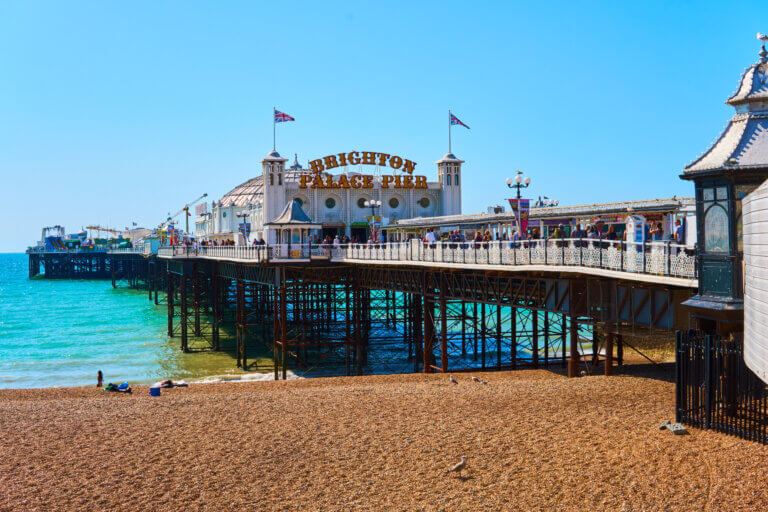
Discovering the UK
Looking to explore beyond the boundaries of London? We’ve got you covered with plenty of fantastic recommendations.` The UK is brimming with captivating places, ranging